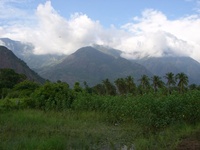Environment ministry notifies `no-go’ zones in Western Ghats
15 Nov 2013
The ministry of environment and forests (MoEF) has finally notified nearly 60,000 sq km area of the Western Ghats across six states as Ecologically Sensitive Area (ESA), where activities like mining, quarrying and other activities that endanger the fragile ecosystem or pollute the environment will be banned with immediate effect.
 The order also bans building and construction projects of 20,000 sq meters area and above and township and area development projects of 50 hectares and above or with built up area of 1,50,000 sq meters and above in the notified areas.
The order also bans building and construction projects of 20,000 sq meters area and above and township and area development projects of 50 hectares and above or with built up area of 1,50,000 sq meters and above in the notified areas.
The much-delayed action by the environment ministry comes weeks after it approved a revised report on Western Ghats prepared by a committee led by Planning Commission member K Kasturirangan, which recommended prohibition of ecologically harmful activities in the biologically rich and fragile natural landscape that comprise 37 per cent of the Western Ghats.
The Western Ghats that extends over 1,500 km covering the six states also has World Heritage sites and tiger and elephant corridors, making it a fit case to be earmarked as ecologically sensitive area.
The Kasturirangan panel report is a much diluted version of the original report prepared by the Madhav Gadgil Committee.
The MoEF order, however, allows construction of hydro-electric power projects and windmills under strict monitoring.
The ministry notification, posted on its website on Wednesday, gives a comprehensive list of state-wise, district-wise and taluka-wise villages in the ESA and directs the six state governments of Gujarat, Maharashtra, Goa, Karnataka, Kerala and Tamil Nadu to implement the order strictly.
The Western Ghats has been under unprecedented threats due to mining and urbanisation and the MoEF notification asks the states to follow the "non-tolerance" policy against "highly interventionist and environmentally damaging activities."
The notification specifically prohibits highly polluting industries like thermal power, oil refinery, petrochemical, cement, sugar, pesticides, zinc smelting, leather and integrated steel plants among others.
The notification seeks to protect global biodiversity hotspots in the Western Ghats, from where a number of rivers, including the Godavari, Krishna, Cauvery, originate and is a treasure trove of varieties of flora and fauna.
"In case of any violation, appropriate legal action under the Environment (Protection) Act, 1986 will be taken," the notification says.
The notification bans any new or expansion of existing projects in the notified areas across the six states with immediate effect.
However, applications for various environmental clearances for setting up projects submitted before 17 April 2013 will be processed as per earlier rules. The Kasturirangan committee submitted its report on 17 April.
The ministry will soon constitute a committee to monitor the implementation of the Kasturirangan panel report in a time-bound manner.


















